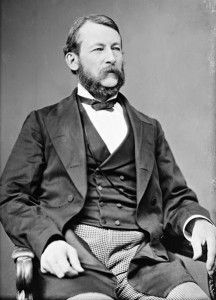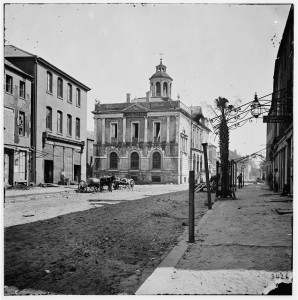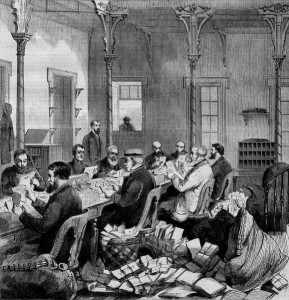Reiterating Mail Suspension To and From Rebel States
From The New-York Times June 20, 1861:
THE SUSPENDED MAIL SERVICE.; EXPLANATORY CIRCULAR FROM THE POST-OFFICE DEPARTMENT.
The following official document from the Post-office Department explains the orders for the suspension of mail service in the rebellious States:
APPOINTMENT OFFICE, June 14, 1861.
SIR: Numerous inquiries are made at this Department respecting the late orders of the Postmaster-General. It was not doubted that the wide publicity given to those orders through the public Press would furnish ample notice to all Postmasters. For further certainty they are again published, as follows:
1. The Postmaster-General issued his order of the 27th of May, under act of Congress approved Feb. 28, 1861, suspending the entire mail service, post routes and post-offices in the States where “the postal service could not be safely continued,” namely: the States of North and South Carolina, Florida, Georgia, Alabama, Mississippi, Louisiana, Texas, Arkansas and in Virginia, except the western portion thereof, in which the mails were still transported safely.
2. This order rendered it necessary to transmit to the Dead-Letter Office all mail matter directed to any post office thus discontinued; and such order was accordingly issued, that valuable letters might be returned to their writers.
3. The use of United States stamps and stamped envelopes by the discontinued postmasters, is nothing less than embezzlement, and cannot be recognized by any postmaster as payment for United States postage. All postmasters are, therefore, immediately upon the receipt of any letter mailed from the abovementioned States, coming through or to their Post-offices, and whether appearing to be prepaid or not, to hold it for postage and transmit it directly to the Dead-Letter-Office to be disposed of according to law, but if letters actually arrive at the office of delivery, they may be delivered upon payment of postage as upon letters wholly unpaid.
4. The same order will be applied, without further notice, to all letters mailed (prepaid or not) at any discontinued post office, whether hereafter discontinued by special order or by general discontinuance of service in the district or State.
5. No letter or package can be forwarded to its address through the United States mails, except from foreign countries with which this Government has postal treaties, unless regularly mailed at one of the established post-offices of the United States, and postage there regularly prepaid. All matter not thus mailed must be forwarded, without delay, to the Dead-Letter Office at Washington.
6. No mail-pouch, sack, or lock can be sent by any Postmaster to any point or place where such service has been discontinued. All pouches, sacks and locks coming to a Post office from such discontinued offices and routes will be retained and sent to the proper depositing offices.
The postal service will be restored on such discontinued routes as early as practicable, of which notice will be duly given.
By order of the Postmaster-General,
JOHN A. KASSON,
First-Assistant Postmaster-General.
John A. Kasson was a delegate from Iowa to the 1860 Republican convention, where he had a major role in making the party’s platform. His long career included elective politics and diplomacy. In 1863 he got to go to Paris for the International Postal Congress.



